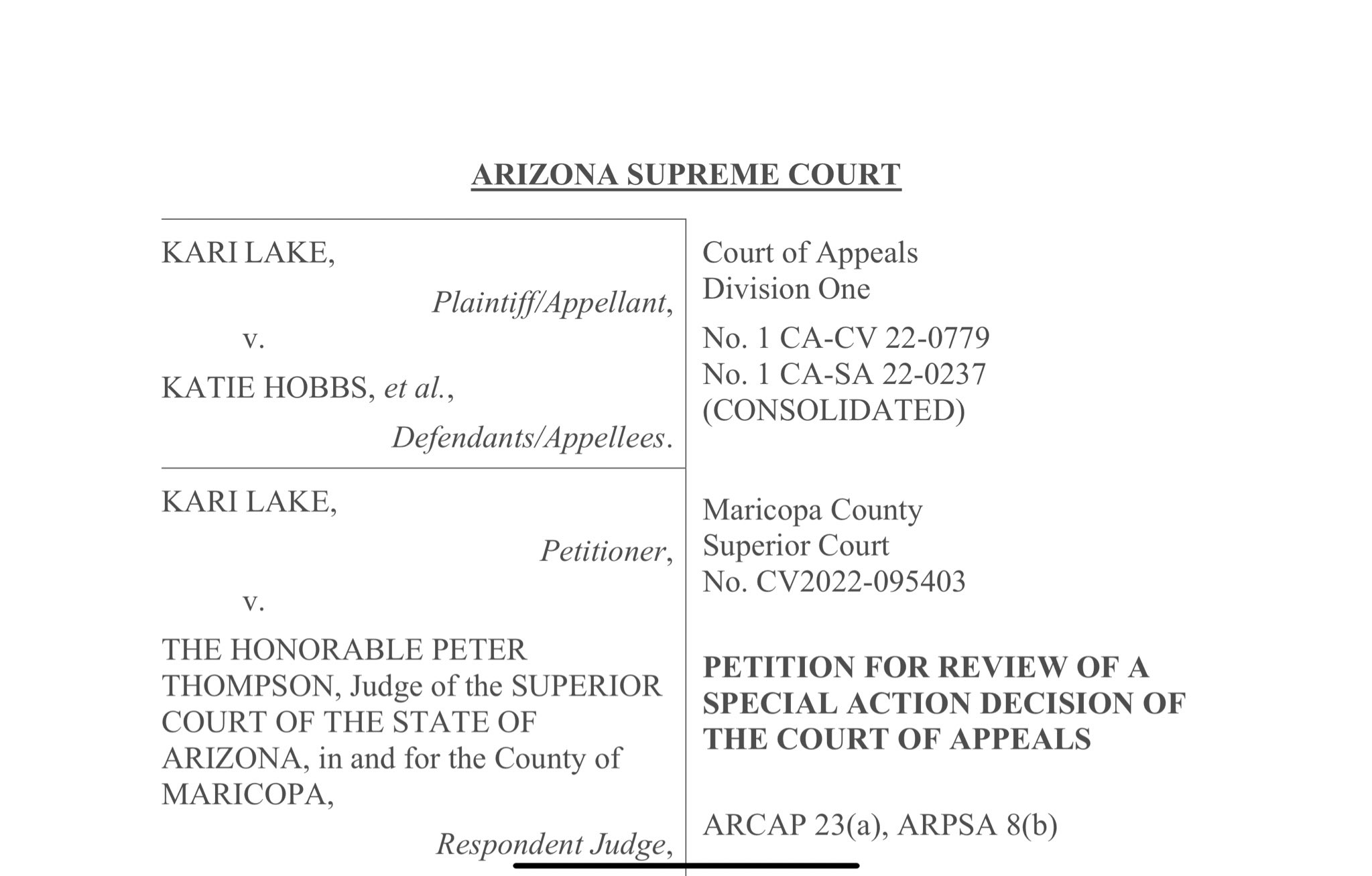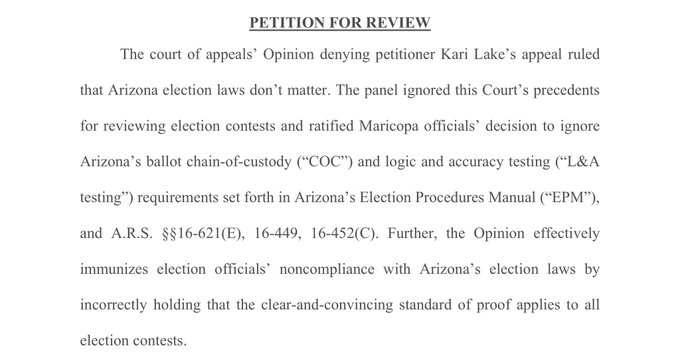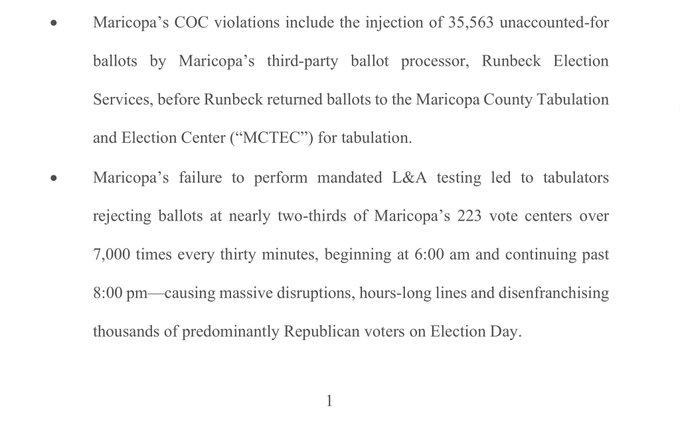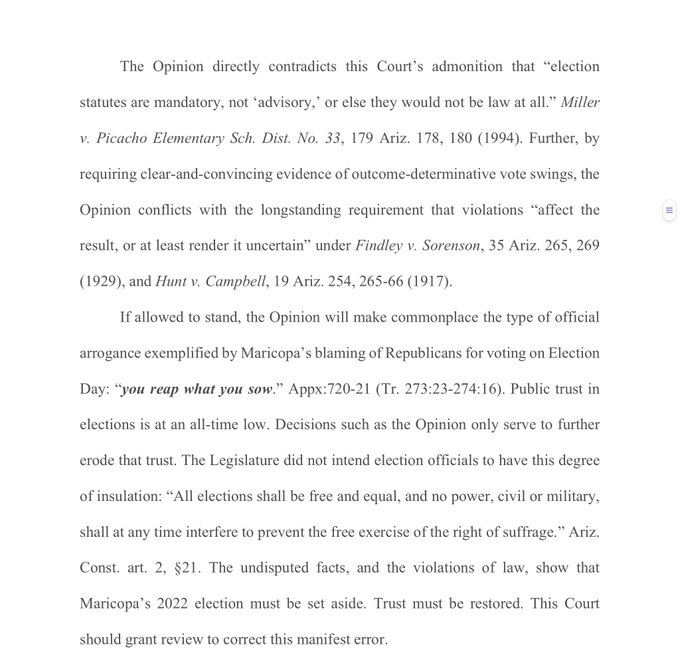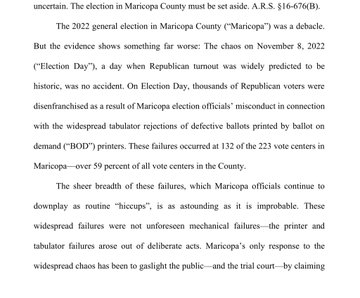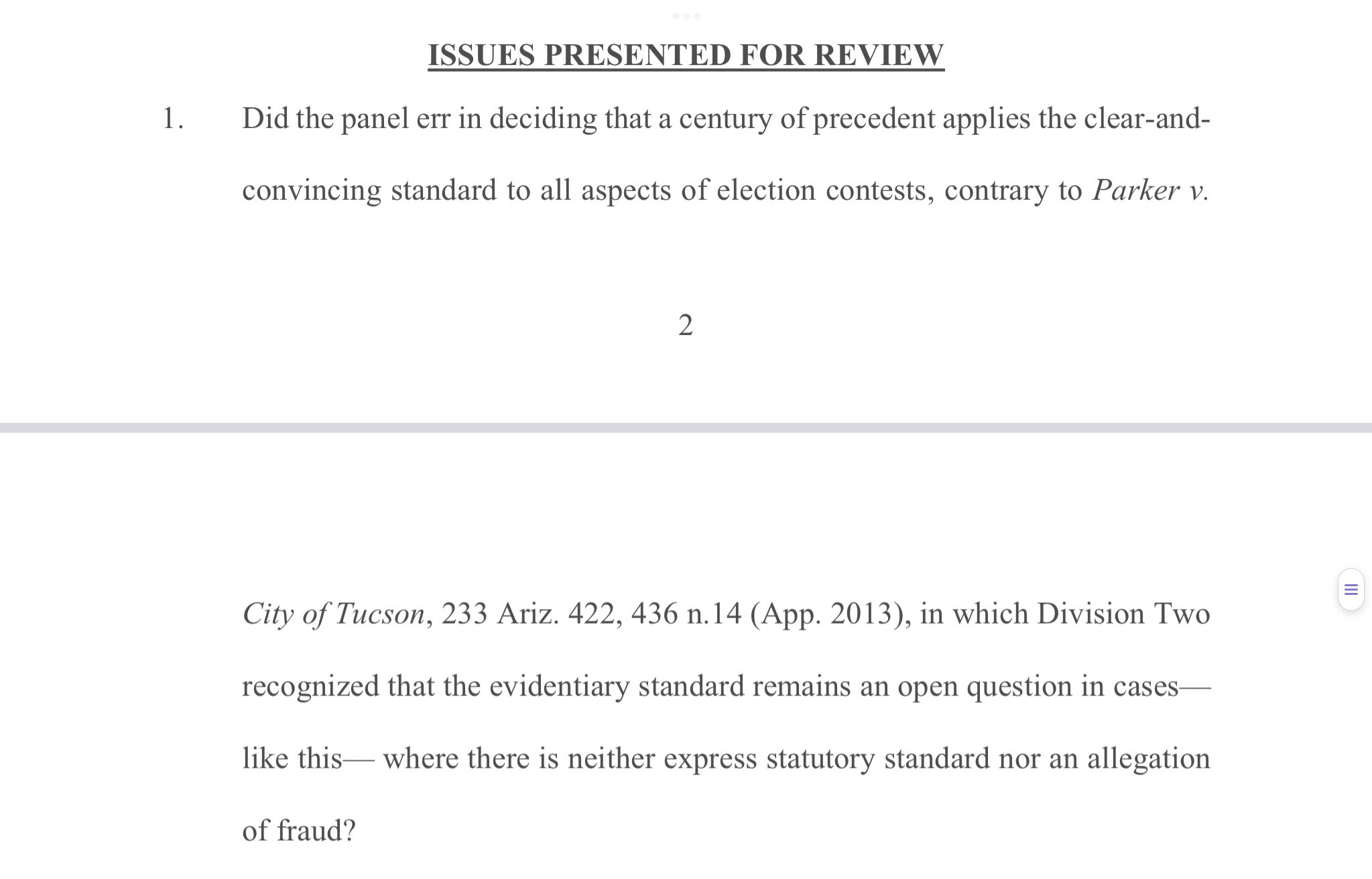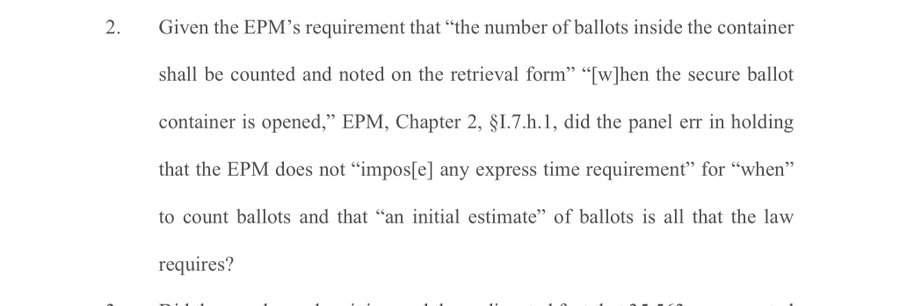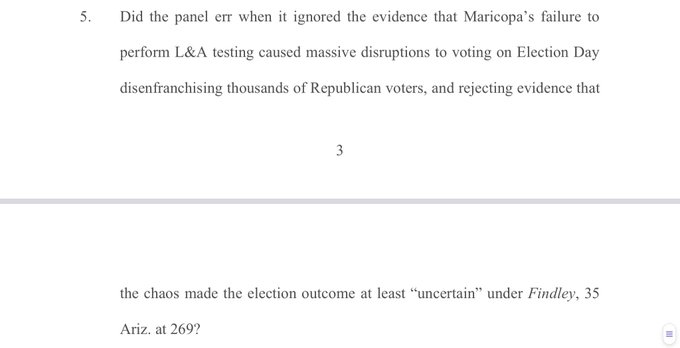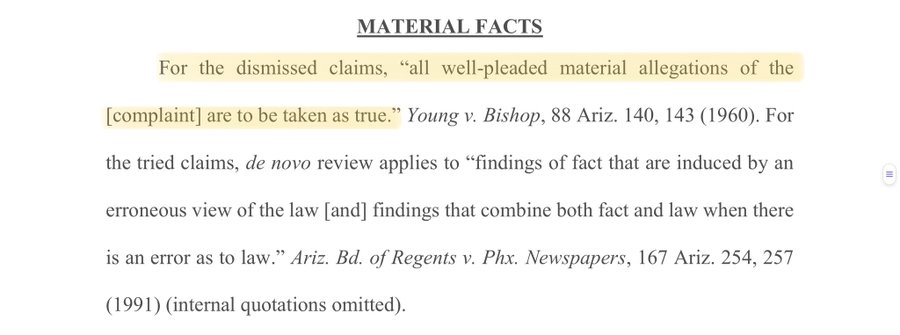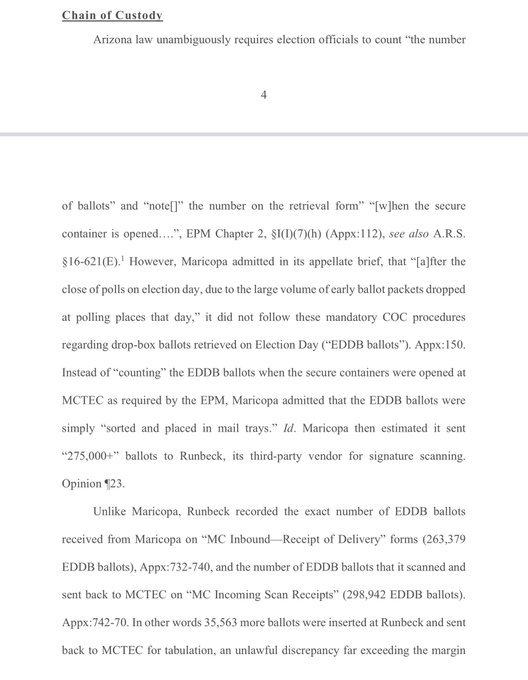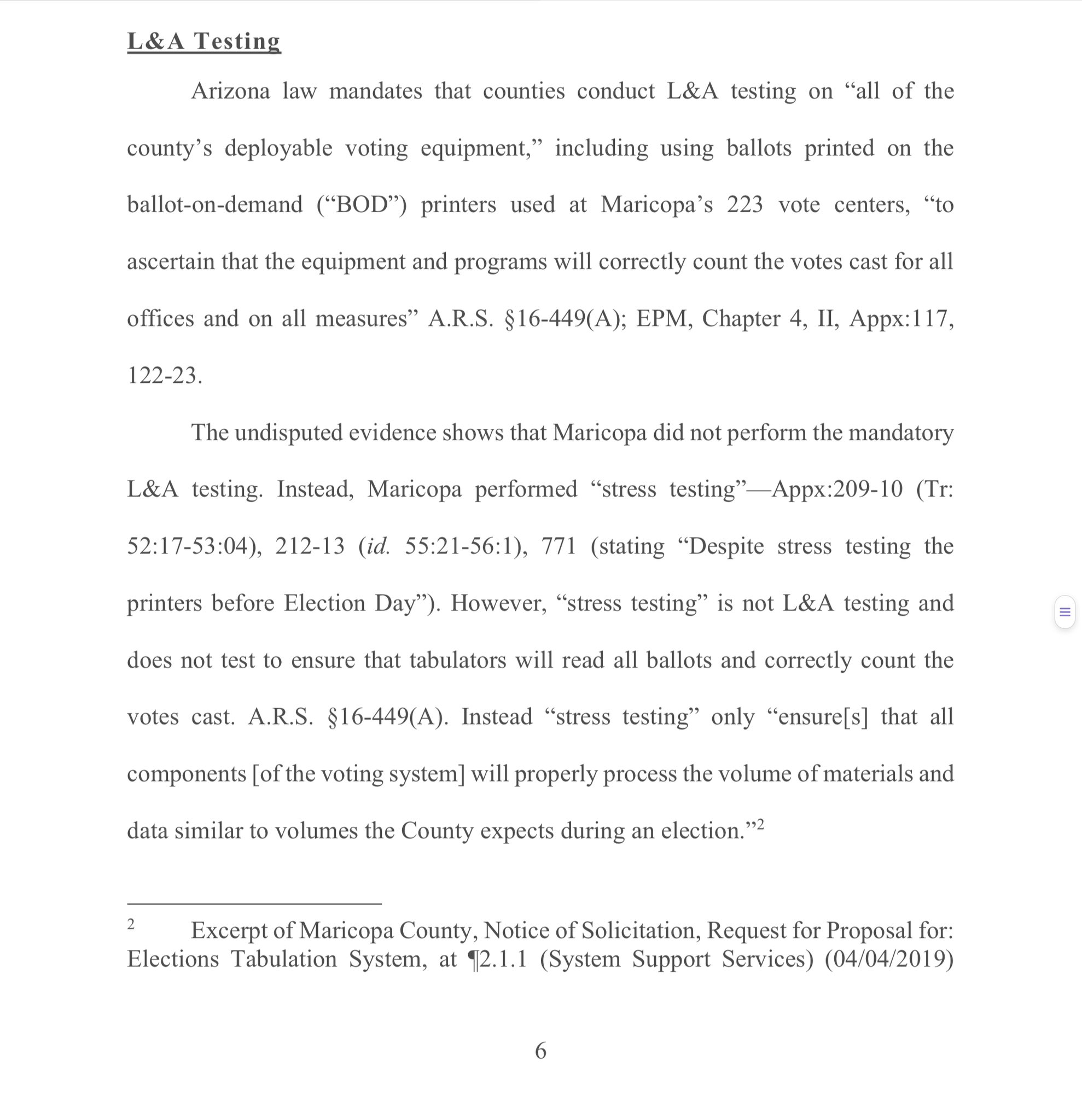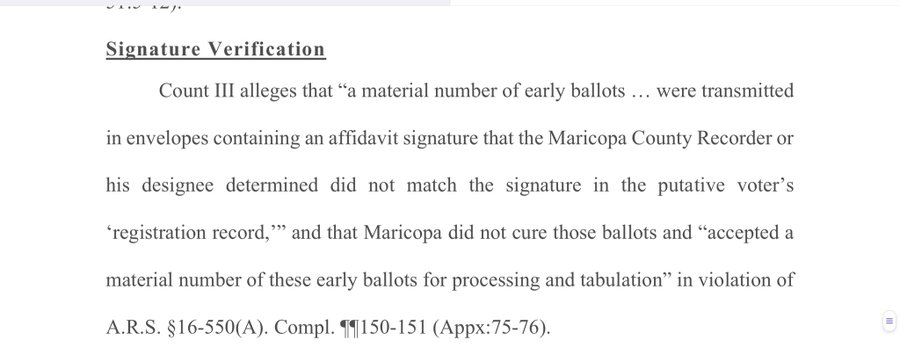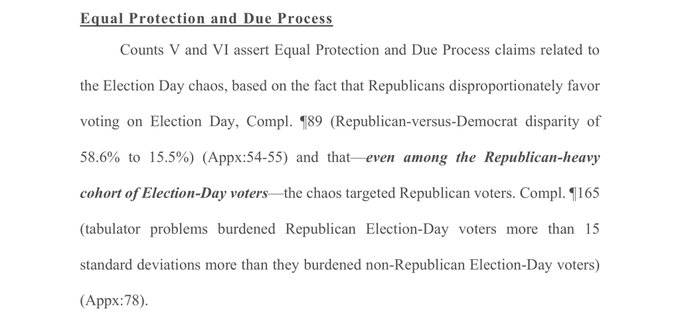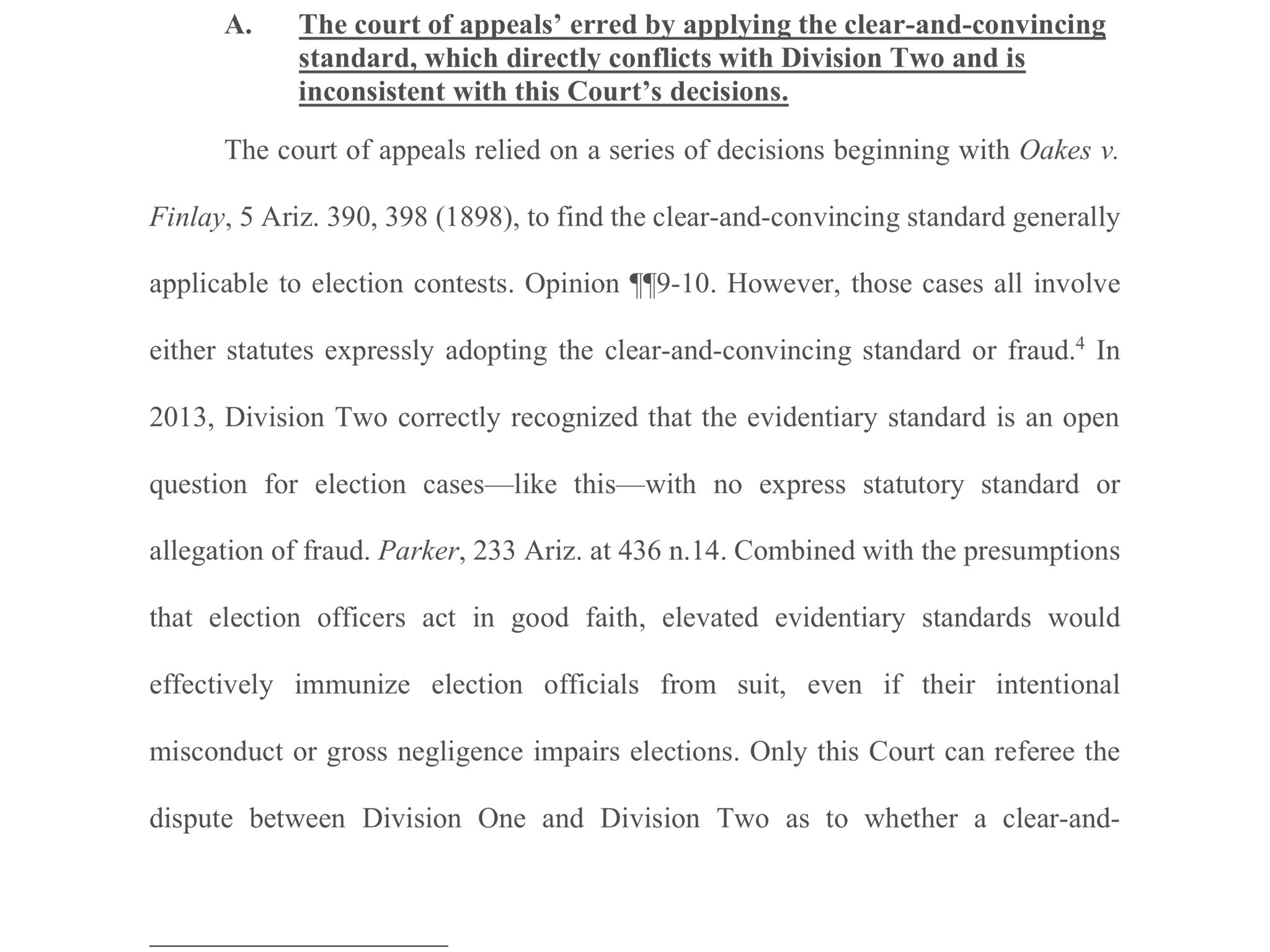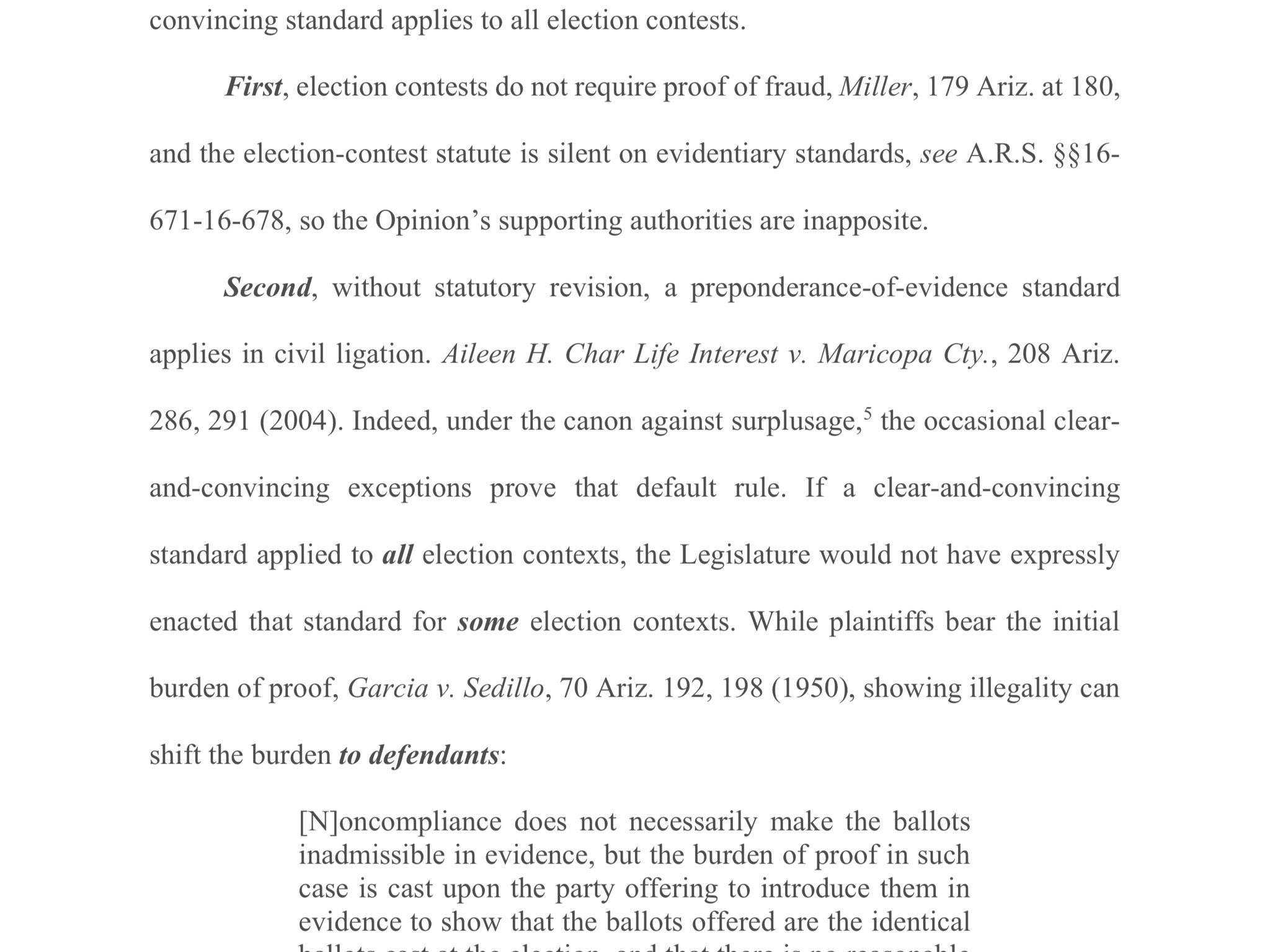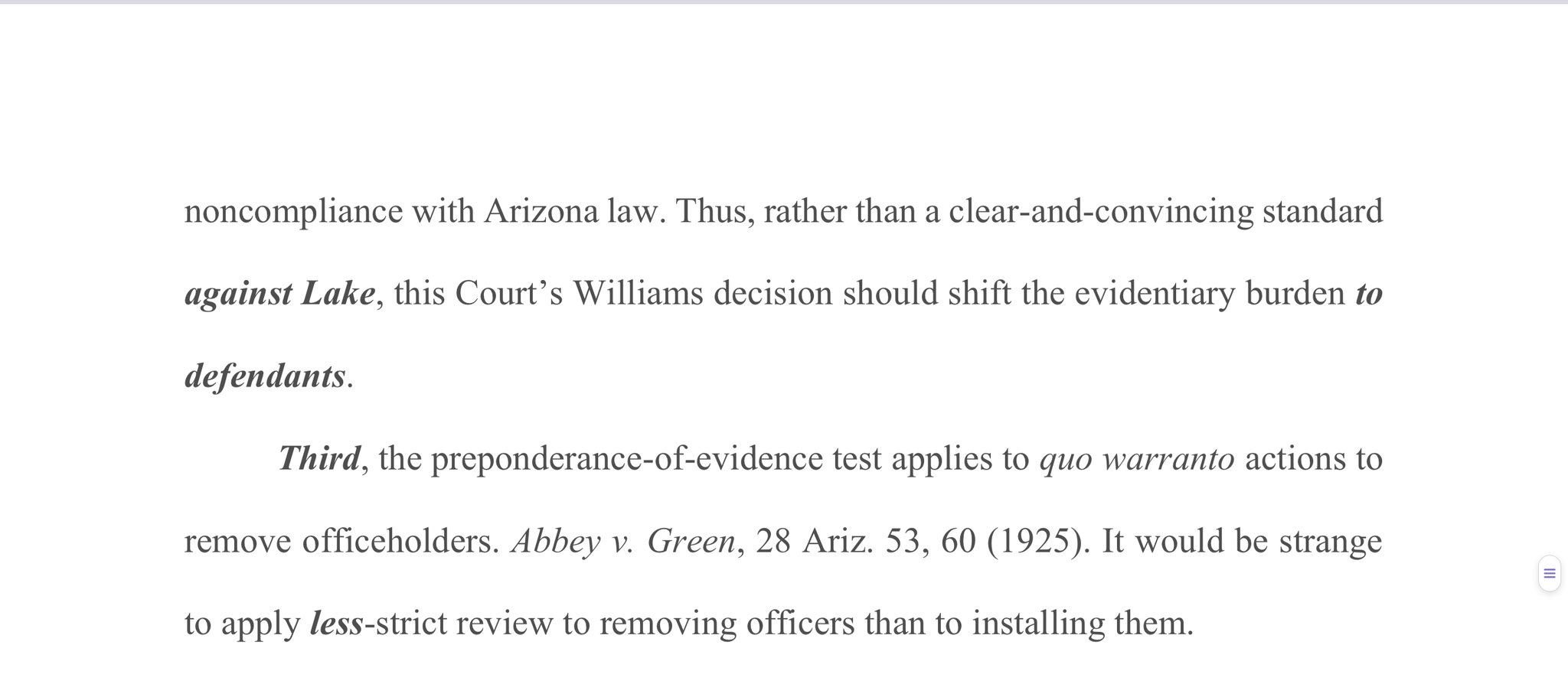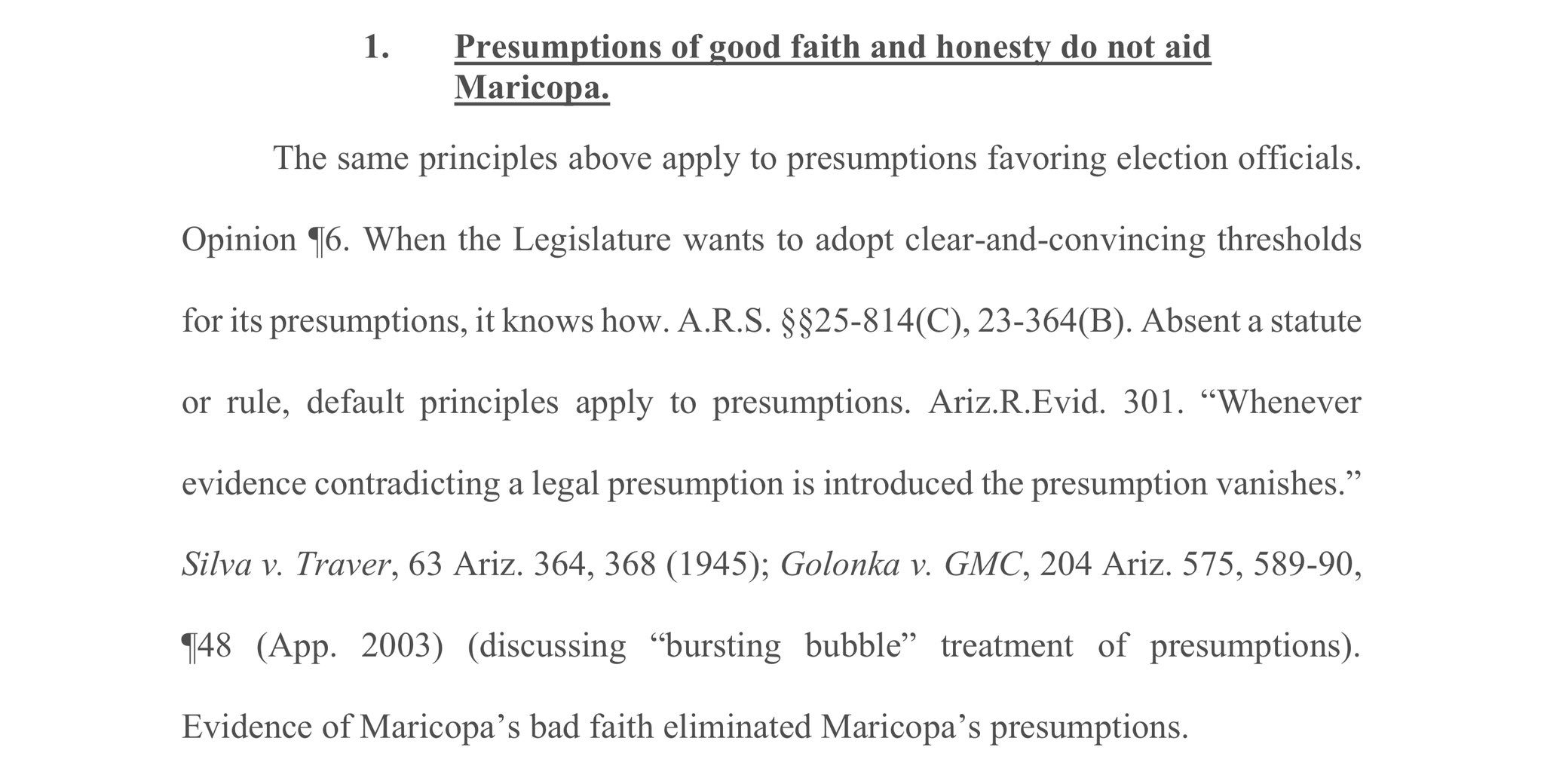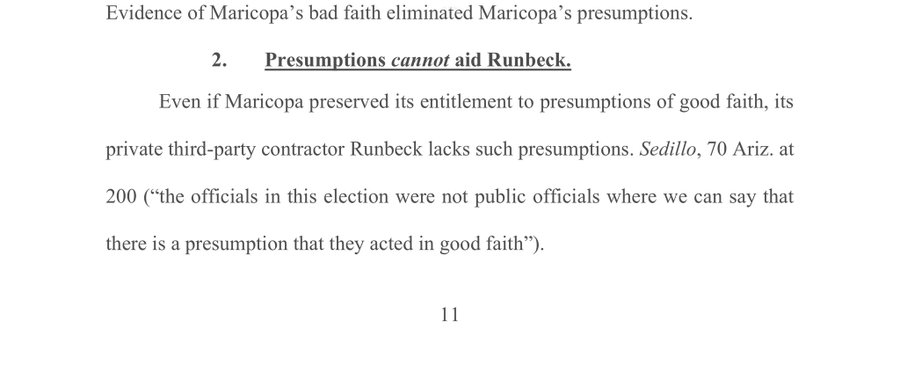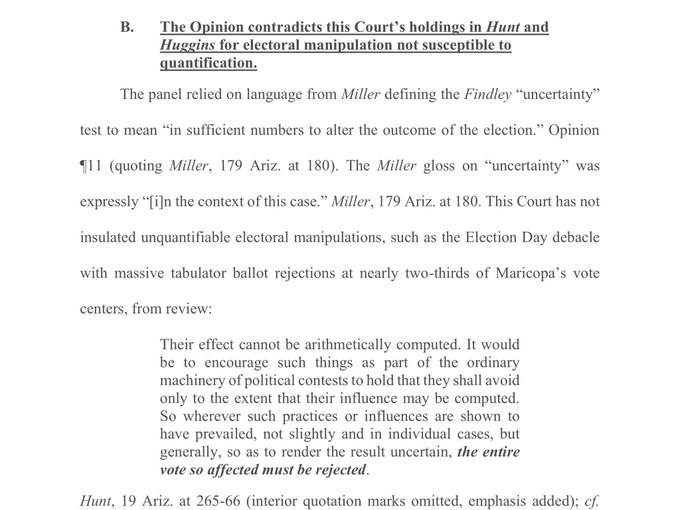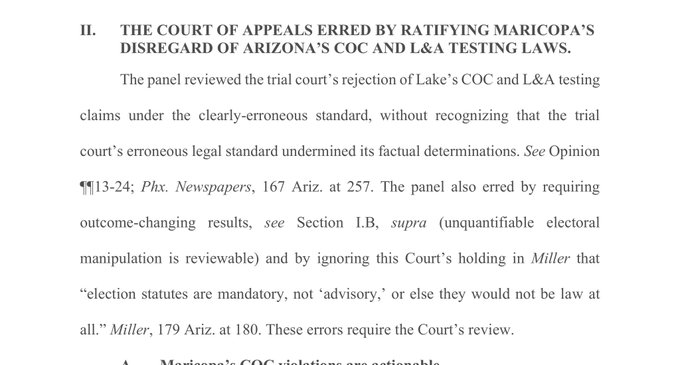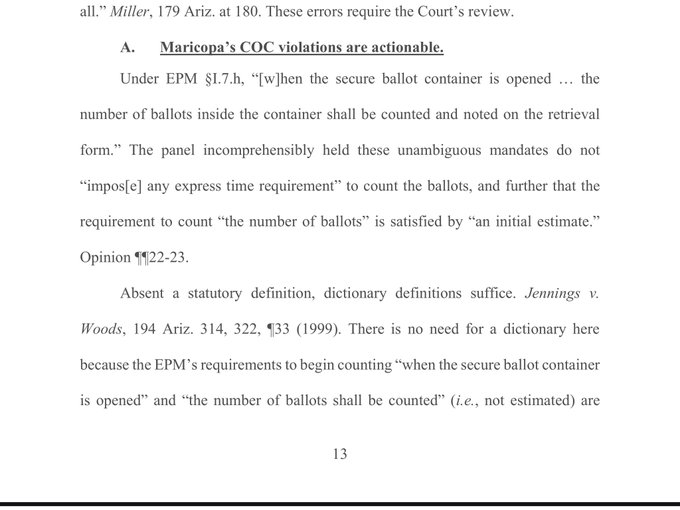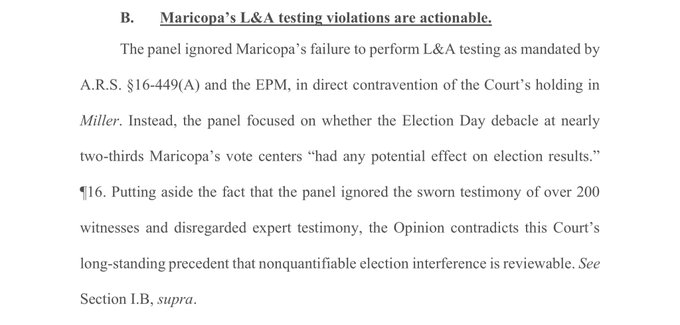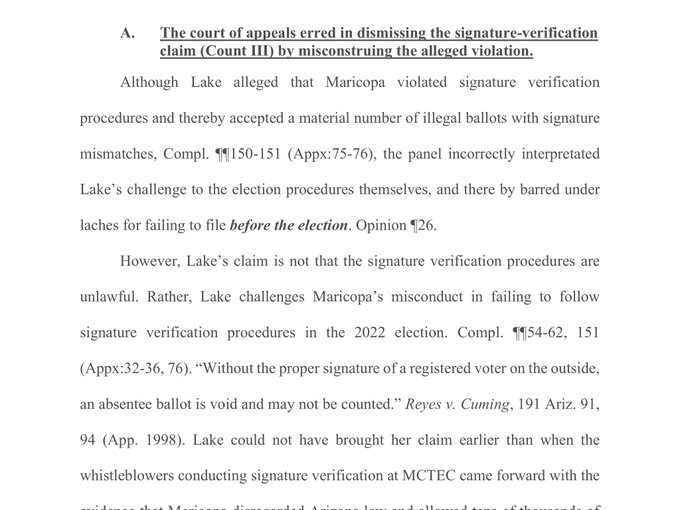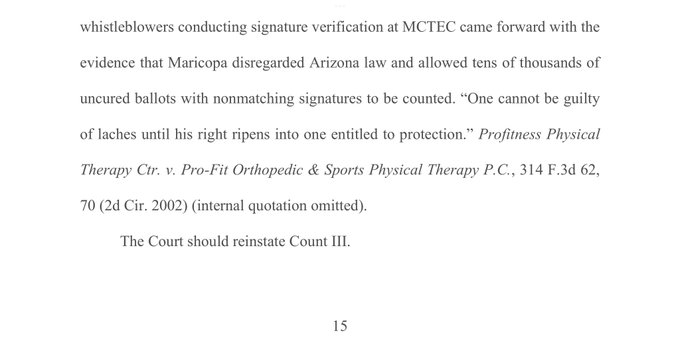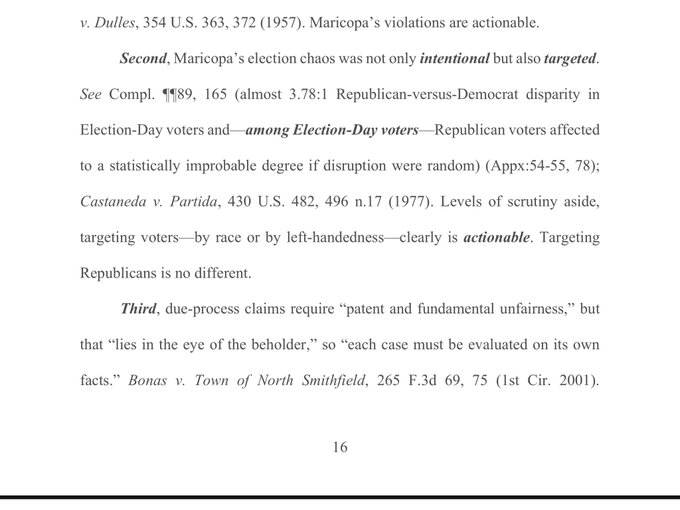Kari Lake has taken her election challenge to the Arizona Supreme Court. The filing is solid and goes through issues of real importance, not just for the 2022 election that has passed but for all elections moving forward. At issue are the lower court rulings that fundamentally change how elections are handled in Arizona, and they fundamentally change them because they ignore all of the rules. Sit back, grab a cup of coffee, and become a law nerd with me briefly.
The AZ Supreme Court has already granted the motion to expedite and set a schedule. Defendant response due 3/13. Amicus Curiae is due by 3/16 (I expect many of these.) The court will decide whether to hear argument on the case in conference on 3/21.
Lake v. Hobbs filed at the AZ Supreme Court. This will be the analysis and breakdown of the filing. Please see here for the document.
Several people argue that there was “no evidence” of any fraud or issue that could render the results of the gubernatorial election uncertain. That is the standard of law that should be used when courts consider an election. The lower courts refused to use this standard, instead using the “clear and convincing” standard, which was not applicable. Even so, there WAS evidence of fraud, and there were major issues in that election.
FACT: Maricopa County DID NOT FOLLOW Chain of Custody regulations. That failure allowed 35,563 votes to be “injected” into the count.
FACT: Maricopa County did not perform Logic and Accuracy Testing as required, which led to tabulators rejecting ballots at 2/3 of the vote centers over 7k times every 30 minutes— from 6 AM to 8 PM. These are FACTS.
There has been an extraordinary amount of latitude given to those entrusted with running our elections - many times literally outside of the law - for “fear” of ruling that there was an issue with an election. People argue that rulings that affirm allegations of fraud and issues - even when they CLEARLY exist - “undermine the confidence” in our free and fair election process. I argue the OPPOSITE is true. Allowing this extraordinary latitude and criminality is rendering our elections useless.
As the filing says, courts have always ruled that election statutes are MANDATORY; otherwise, why have them at all??? Why bother if they can be ignored, followed a bit, or disposed of when inconvenient?
Remember, Liddy, attorney for Maricopa, blamed voters for voting on Election Day. In his closing arguments, he proclaimed, “you reap what you sow.”
They state what was proven at trial; failures on Election Day were deliberate. They state what Maricopa has done; Marginalize the deliberate acts with claims of “hiccups” and diminish their impact. This, even as the closing argument blamed voters (Liddy: “You reap what you sow”)
Several facts are in front of the AZ SC in this filing.
1. Did the appeals court err in what standard should be used when adjudicating election cases?
2. The EPM *requires* that ballots be counted and noted on the retrieval form “when the secure container IS OPENED.” The lower court ruled that the EPM doesn’t impose any time requirement, and an “initial estimate” is all that is required. Did the lower court make a mistake when it ruled that the language shouldn’t be interpreted as expressly written?
3. Did the lower court err when it ignored the fact that 33,563 ballots were added to the total number of ballots at a 3rd party facility - an amount far exceeding the vote margin - with the court holding that this was “insufficient” to show the outcome of the election was at least “uncertain.”
4. Did the court err when it *ignored* that Maricopa DID NOT PERFORM Logic and Accuracy testing as required?
5. Did the court err when it *ignored* the fact that because of this failure, disruptions disenfranchised thousands of Republican voters and that this rendered the outcome at least uncertain?
6. This is a big one- did the court err in dismissing the signature verification claim on laches, mischaracterizing that Kari Lake was challenging the existing policies when in fact… She alleged they failed to follow existing policy during the election. She never argued the policy was wrong. She argued they did not follow it.
7. Did the court err in dismissing the Equal Protection and Due Process clauses as a repeat of another count without considering additional issues, like targeting Republican voters using “heat maps” in Maricopa County?
(This one can go to SCOTUS)
OK, “there’s no evidence,” people. Buckle in. We are about to provide lots and lots of it.
Chain of Custody is the cornerstone. Maricopa county admitted in its appellate brief that because of the sheer number of ballots, they didn’t follow the MANDATORY CoC procedure, and they didn’t count the ballots when they arrived at MCTEC as they were required, instead deciding to estimate how many there were and send them to Runbeck. Runbeck DID count the ballots.
When Runbeck counted, they recorded the tally on “inbound” delivery sheets at 263,379.
Then it counted the number of ballots it scanned and sent back... At 298,942.
That is a difference of 35,563 ballots inserted and scanned at Runbeck. Playing Devils Advocate- even *if* this were innocuous, we have no way to know. The count is in question because Maricopa failed to follow the mandatory CoC procedure. That’s more than the margin of victory.
Arizona law REQUIRES that Logic and Accuracy testing be required on ALL of the counties' deployable voting equipment. They did not do Logic and Accuracy testing. They performed stress testing. In an honest world, Logic and Accuracy testing would have picked up the issues that caused 7,000 ballots per hour to be rejected. The fact that they did not perform LA testing has not been disputed in the record. Maricopa accepts that they didn’t follow the law. Did the lower court make an error in not following it themselves?
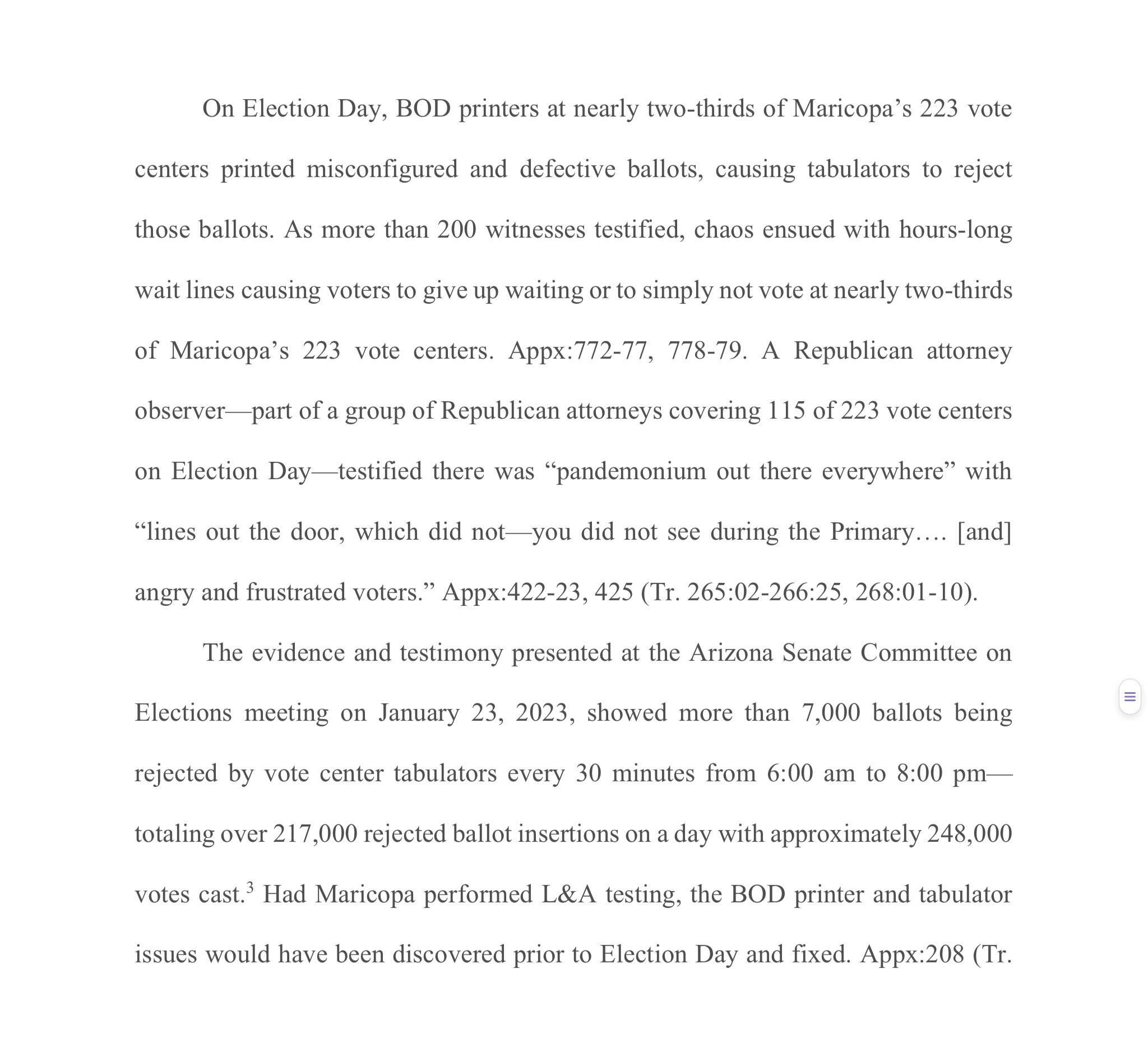
Equal protection and due process claims are asserted due to the disproportionate number of Republican voters disenfranchised or burdened on Election Day.
As stated in my editorial for @UncoverDC: Fraud in the Arizona Election: There's No Evidence!! The argument coming back from Maricopa County, Hobbs, etc., is that no one was disenfranchised that day because their votes were counted when they were placed in drawer three and if they were printed with a 19” image on 20” paper, which they told us was impossible, those ballots were duplicated and cast. There’s a problem, though. There is no evidence that they were, and we know for a fact many were not.
When Clay Parikh, an expert witness for Kari Lake, visited MCTEC to sample ballots as ordered by the judge, he was standing with Jarrett, and none of the ballots that should have been duped had the duplicate ballot with it. This is required. Jarrett was unable to produce those for Parikh. Jarrett told Parikh he would have to wait at least a week. Jarrett then went on the stand and testified that there was no way a 19” ballot image could print on a 20” paper, even after he witnessed the ballots that were 19” images, and told Parikh he would have to wait for the dupes. Let that sink in.
We now get into the legal argument for the standards used, which is nuanced, but you should understand it so that you can debate with honest brokers who cross your path. Essentially, there is a dispute between courts at issue here. The appeals court used cases dissimilar to the Lake case to conclude that the “clear and convincing” evidence standard should be used to decide the facts. The cases they referenced had to do with accusations of *fraud*.
If these evidentiary standards were used to adjudicate elections, it would effectively immunize election officials from any lawsuit, even if they exercised gross negligence leading to massive issues with an election. Additionally, a lower standard of evidence is required in AZ to *remove* people from office. It doesn’t make good sense that a higher standard was intended when installing them.
The appeals court applied a presumption favoring the good faith of Maricopa County officials (I also discussed this in the editorial); however, the very moment evidence is introduced to the CONTRARY of that good faith, as in this case in a myriad of ways, that assumption dissipates.
Runbeck doesn’t get the same presumptions that Maricopa county would get because they aren’t public officials.
The appeals court narrowly interpreted a single court case to determine the definition of the “uncertainty” test, that the uncertainty must have been in great enough numbers to affect the outcome. Although Lake met that challenge, that isn’t the right standard. If unable to quantify using math, and the result is rendered uncertain, the entire vote must be rejected.
The appeals court used the incorrect standard when reviewing the CoC and L&A testing claims made and, by doing so, undermined the facts. Additionally, the panel erred by requiring “outcome-changing” results, as discussed in the last post. This is going to be where the majority of the case lies because this is a serious issue that only the upper court can rectify.
Ballots must be counted when the secure container is OPENED. It doesn’t account for the number of ballots, what time it may be, etc. Otherwise, there is no chain of custody. This point is so critical. The procedure is clear and must be followed. It isn’t ambiguous. Read it yourself. The lower court interpreted it completely wrong. Lake points out that if this is allowed to stand, it will destroy election procedure in the state.
The appeals court ignored that L&A procedure wasn’t followed (against the law), acknowledging it but using the standard “did it affect the results.” This is erroneous.
The court incorrectly viewed the challenge to signatures- again - Lake wasn’t arguing about the procedures themselves, but that they weren’t followed. I don’t understand how they did this because it was specific and clear as day and included witnesses' testimony. It seems purposeful, in my opinion.
And finally, the due process claims are valid because such a large percentage of Republicans were affected by all of this that there is no way it was unintentional. (See heat map column)
Now, we wait to see if the AZ Supreme Court will hear this case and decide on it. There are many VERY important issues at play here that will ripple far outside of the Lake election.


